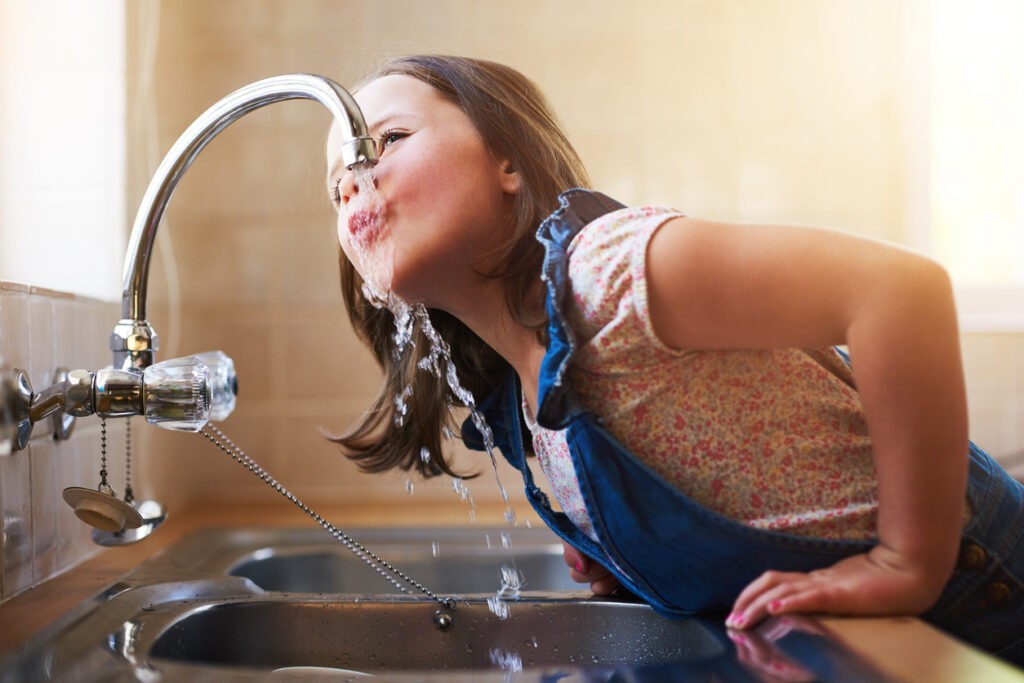Lead pipes are still present in old houses. If lead from those pipes gets into your drinking water, it can harm your health and of your children. In this article you will learn how to identify lead pipes and how to avoid lead contamination.
Contamination from lead pipes
Water does not naturally contain lead, but when drinking water flows through lead pipes, the lead on the inside can partially dissolve and thus contaminate the water.
According to the World Health Organization (WHO) and according to the European Drinking Water Directive, water intended for consumption may contain a maximum of ten micrograms of lead per litre. If you ingest more lead, it is harmful to your health. An excess of lead can cause problems, especially for pregnant women, babies and children up to the age of seven. For example, children can have a negative effect on brain development and everyone can experience an impact on blood pressure and kidney function. This can eventually lead to cardiovascular disease and chronic kidney problems.
The danger of old houses
Tap water is in most countries subject to strict controls. Unless there is a local problem with the water supply in your street, therefore, in principle no contaminated drinking water can enter your home.
Until around 1970, however, lead was often used for pipes and couplings. So if you have an old house whose pipe system has not yet been replaced, there is a risk that it contains lead that can end up in your drinking water. According to the evolution of the building habits and the building material used, there is most of the time no problem with houses built after 1970.
Identify lead pipes
Are you in doubt? Then it is best to inspect your pipes and couplings. Look close to the water meter: the pipes are often exposed there. Lead pipes can be recognized by their gray colour. Copper tubes, on the other hand, are reddish brown or green. With a magnet, you can then tell the difference between steel or galvanized pipes, which are magnetic, and lead pipes, which are not.
What to do with lead pipes?
Have you discovered lead in your home’s plumbing? Then you would do well to replace it as soon as possible. Of course, this cannot happen overnight. In the meantime, it is advisable not to drink tap water. You can use this water without any problems for cleaning or for watering your plants.
Are you having your piping system replaced? Then definitely consider installing a water softener right away. This way you can enjoy the many benefits of soft water.


